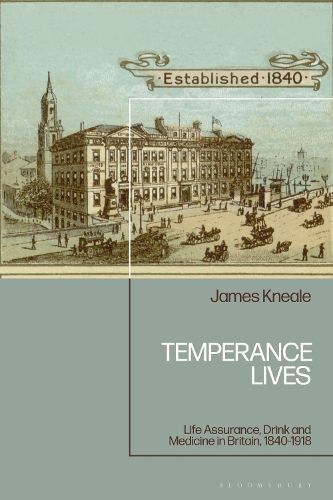Readings Newsletter
Become a Readings Member to make your shopping experience even easier.
Sign in or sign up for free!
You’re not far away from qualifying for FREE standard shipping within Australia
You’ve qualified for FREE standard shipping within Australia
The cart is loading…






This book explains how the rise of temperance life assurance affected ideas surrounding the dangers of drinking and abstinence between 1840 and 1918.
James Kneale examines how temperance life insurance - initially a speculative business venture - evolved into a social experiment that played a crucial role in persuading ordinary people, doctors, and insurance firms that abstaining from alcohol was safer than drinking it. Drawing from archival materials, Kneale analyses contemporary stories from teetotallers and high-street temperance businesses, and investigates the broader impact on 'temperance towns' such as Manchester, Exeter, and the Pendle area.
By charting the evolution of the first temperance life assurance firm (UKT) from its difficult beginnings, to being the eighth largest British life assurance firm by the 1890s, the author demonstrates to readers how quickly social attitudes surrounding teetotalism changed, and why.
$9.00 standard shipping within Australia
FREE standard shipping within Australia for orders over $100.00
Express & International shipping calculated at checkout
This book explains how the rise of temperance life assurance affected ideas surrounding the dangers of drinking and abstinence between 1840 and 1918.
James Kneale examines how temperance life insurance - initially a speculative business venture - evolved into a social experiment that played a crucial role in persuading ordinary people, doctors, and insurance firms that abstaining from alcohol was safer than drinking it. Drawing from archival materials, Kneale analyses contemporary stories from teetotallers and high-street temperance businesses, and investigates the broader impact on 'temperance towns' such as Manchester, Exeter, and the Pendle area.
By charting the evolution of the first temperance life assurance firm (UKT) from its difficult beginnings, to being the eighth largest British life assurance firm by the 1890s, the author demonstrates to readers how quickly social attitudes surrounding teetotalism changed, and why.